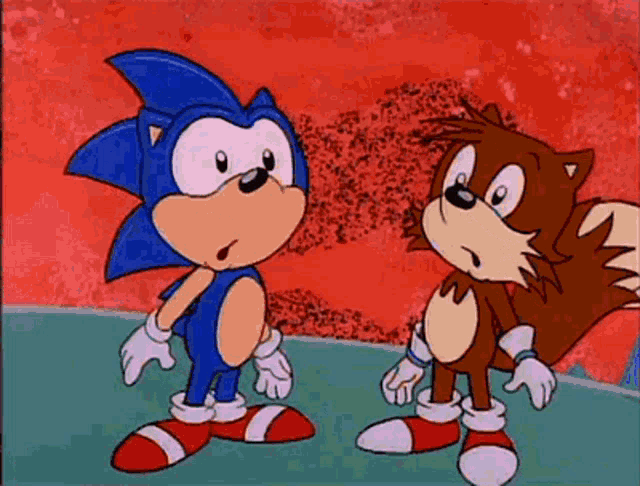Have you ever felt truly misunderstood, like your best efforts just weren't seen for what they were? That feeling, that raw frustration, it really connects with people, you know? It's a sentiment that reaches across time, touching hearts whether you're a little kid or a grown-up. For many who adore the "Peanuts" crew, a particular moment stands out as a genuine expression of this very human experience: Sally Brown's monologue about her coat hanger sculpture. It’s a scene that, in a way, just captures so much of what it means to feel a bit put out by the world.
This little piece of theatre, pulled from "You're a Good Man, Charlie Brown," really shines a light on Sally, Charlie's younger sister, and her unique way of seeing things. It’s a moment that, you could say, shows her personality in a very clear light. The monologue, which focuses on her getting a less-than-stellar mark on a creative school project, has become quite a well-known bit for actors and fans alike, actually. It’s one of those parts that, honestly, sticks with you long after you hear it.
It's not just about a school grade; it's about the bigger picture of fairness, about artistic expression, and about the sometimes confusing rules of grown-up life. The words, written by Clark Gesner for the musical, give us a peek into Sally's mind, a place where logic sometimes takes a back seat to pure, unadulterated annoyance. And that, in some respects, is what makes it so relatable and, really, quite funny for audiences.
- Erome Sophie Rain The Rising Star Of Spiderman Franchise
- Air Astana 2024 Incident A Comprehensive Overview
- Frank Fritz Passing A Tribute To The Iconic Reality Star
- Tia Kemp Photos A Comprehensive Look At Her Life And Career
- Does Freddie Highmore Really Have A Twin Brother
Table of Contents
- Sally Brown - Her Story and Character
- What is the Sally Monologue About?
- How Does the Sally Monologue Connect with Audiences?
- The Coat Hanger Sculpture and Sally Brown's Frustration
- Sally Brown Monologue - A Look at the Performance
- Why is the Sally Monologue So Popular for Actors?
- Beyond the Sally Monologue - The Peanuts World
- Sally Brown Monologue - A Lasting Impression
Sally Brown - Her Story and Character
Sally Brown, as a character, offers a rather distinct viewpoint within the Peanuts universe. She's Charlie Brown's little sister, and she's got a spirit that, you know, sometimes runs a bit wild. She's often seen trying to make sense of the world around her, which, frankly, doesn't always seem to make much sense to her. Her attempts at logic, her pronouncements, and her occasional outbursts are what make her such a memorable person in the stories. She's a kid who, basically, wants things to be fair, and when they aren't, she's not shy about saying so.
She's got a crush on Linus, which is a running gag, and she's often found complaining about school or the perceived injustices of her life. Her personality is, in a way, a mixture of innocence and a surprisingly strong sense of self-importance. She's not one to back down easily, and her monologues often show her grappling with concepts that feel too big or too silly for her to truly grasp. This makes her, honestly, quite a treat to watch or read about, since she's always got something to say about the state of things.
Her role in "You're a Good Man, Charlie Brown" helps to show different parts of the Peanuts characters, giving them a voice to express their inner thoughts. Sally's contributions to the musical really bring out her individual charm and her unique outlook on everyday happenings. It's almost as if she's the voice for all those little moments of childhood frustration that we, as grown-ups, sometimes forget. She's, you know, a pretty central part of the whole gang's dynamic.
- Who Did Nancy Kerrigan Marry A Deep Dive Into Her Life And Relationships
- John Allman The Versatile Musician Who Captivates Audiences
- Shane Gillis Family Members A Deep Dive Into His Life
- Vikram Dhruv Vikram The Rising Star Of Indian Cinema
- Fran Fritz A Comprehensive Look At The Life And Career Of A Rising Star
Sally Brown - Personal Details
| Detail | Description |
|---|---|
| Full Name | Sally Brown |
| Family Ties | Younger sister to Charlie Brown |
| Key Relationships | Has a significant fondness for Linus van Pelt; often interacts with Lucy, Snoopy, and other Peanuts friends. |
| Defining Traits | Expressive, sometimes bossy, prone to philosophical musings, often feels unfairly treated, a bit of a romantic when it comes to Linus. |
| Notable Moments | Her "coat hanger sculpture" monologue; her constant waiting for Linus at the pumpkin patch during Halloween; her "my sweet babboo" line. |
| School Life | Often finds school assignments puzzling or illogical, leading to her memorable complaints. |
What is the Sally Monologue About?
The "Sally monologue Charlie Brown" piece, as it is often called, centers on Sally's deep annoyance with a grade she received on a school art project. Specifically, she's upset about getting a 'C' on her coat hanger sculpture. For her, this isn't just a mark; it's a profound injustice, a direct attack on her artistic vision, or perhaps, her very sense of what's right and proper. She can't quite grasp why something she poured her creative spirit into would be judged so harshly, especially when, to her, it seemed so perfectly clear what it was meant to be. It's, you know, a pretty big deal for her.
The monologue itself captures the raw, unfiltered thoughts of a child who feels wronged. She questions the teacher's judgment, the very idea of grading something so personal, and the overall absurdity of the situation. It’s a moment where her typical, slightly self-absorbed way of thinking comes to the forefront, as she struggles to reconcile her own view of her work with the official evaluation. She, basically, feels like the system has failed her, and she's not afraid to voice that sentiment quite loudly. This particular "Sally monologue" really shows her true colors, so to speak.
It's not just a complaint; it's a statement about the often confusing nature of authority and the challenges of fitting personal expression into structured expectations. She wonders, you know, if the teacher even looked at it the right way. The simplicity of the "coat hanger sculpture" as the subject makes her distress all the more poignant and, frankly, quite funny. It's a small thing that becomes a huge, overwhelming problem in her young mind, which is, honestly, something many of us can relate to from our own childhoods.
The Coat Hanger Sculpture and Sally Brown's Frustration
The core of this "Sally monologue" truly lies in the coat hanger sculpture itself. It's a simple object, something you might just toss aside, but for Sally, it became a canvas for her creative spark. When she describes it, she sees a beautiful, flowing form, something with genuine artistic merit. The problem, of course, is that her teacher, or the world at large, doesn't quite see it the same way. This difference in perception is, you know, where all the trouble starts.
Her frustration isn't just about the 'C' grade; it's about the dismissal of her vision. She put effort into it, she thought about it, and she believed in what she made. To have it simply rated as "average" or "not good enough" feels like a personal slight. She feels, basically, that her unique way of seeing things was ignored, and that's a pretty tough pill for anyone, let alone a child, to swallow. This "Sally monologue Charlie Brown" moment is, in a way, a protest against being misunderstood.
It's a relatable feeling for anyone who has ever poured their heart into something only to have it met with a lukewarm reception. Sally's outburst is, you know, a classic example of a child's unfiltered reaction to perceived unfairness. She doesn't have the filter of an adult, so her complaints come out with a raw, honest energy that makes the monologue so compelling. The coat hanger, a mundane object, becomes a symbol of her dashed hopes and her struggle to make her voice heard, which is, honestly, a pretty powerful idea.
How Does the Sally Monologue Connect with Audiences?
The "Sally monologue Charlie Brown" has a way of resonating with people, and it's not just because it's part of a beloved musical. There's something genuinely human about Sally's outburst over her coat hanger sculpture. We've all been there, haven't we? That moment when you feel like you've done your very best, only to have it judged by someone who, you know, just doesn't seem to get it. It’s a feeling that, basically, crosses all age groups and experiences.
Her complaints, while humorous, also touch on deeper issues like the subjective nature of art, the pressures of school, and the sometimes arbitrary rules adults impose. Audiences see a bit of themselves, or perhaps their own children, in Sally's passionate defense of her work. It's that universal feeling of "that's not fair!" that makes her words so impactful. She's not just whining; she's expressing a deep-seated belief in her own creative spirit, which is, honestly, something to admire.
Moreover, the musical's presentation of these internal thoughts as monologues allows the audience to truly step into the minds of these characters. With Sally, we're not just observing her; we're hearing her unfiltered thoughts, her logic, and her frustrations directly. This direct connection creates a strong bond between her and the audience, making her seemingly small problem feel, in a way, very significant. It’s a very clever way, you know, to let us feel what she feels.
Sally Brown Monologue - A Look at the Performance
Performing the "Sally monologue Charlie Brown" is, you know, quite a task for an actor. It requires a performer to capture the essence of a child's indignation, without making it seem simply childish. The actor needs to convey Sally's unique blend of innocence, stubbornness, and a touch of dramatic flair. It's about finding the humor in her complaints while also showing the real feeling of being misunderstood. This piece, honestly, gives an actor a lot to work with.
Many performers have taken on this role, bringing their own interpretations to Sally's memorable moment. The "My text" references a few examples, like Emily Song Tyler and Jasmin Cicchino, who have shared their self-taped versions. There's also a mention of Kristin Chenoweth's performance, which, you know, would certainly bring a particular kind of sparkle and energy to the part. Each actor, in a way, brings a fresh take to Sally's specific brand of frustration.
The key to a good performance of this "Sally monologue" is, basically, to make Sally's logic, however flawed it might seem to an adult, completely real and valid from her perspective. The actor has to make the audience believe that this coat hanger sculpture truly is a masterpiece in Sally's eyes and that the 'C' grade is a monumental injustice. It's a chance to show off a performer's ability to embody a character's unique way of thinking and reacting, which is, you know, pretty cool.
Why is the Sally Monologue So Popular for Actors?
The "Sally monologue Charlie Brown" is, you know, a pretty popular choice for actors, especially those looking for audition pieces. There are several good reasons for this. First off, it's a well-known piece from a beloved musical, so many casting directors will be familiar with it. This means they can focus on the actor's performance rather than trying to figure out the context of the words. It's, basically, a safe and recognizable choice.
Secondly, the monologue itself offers a wide range of emotions and comedic timing opportunities. An actor can really show off their ability to convey frustration, indignation, a touch of self-pity, and humor all within a relatively short span of time. It allows for a dynamic performance that can truly capture attention. It's not just a single note; it's a whole little symphony of feelings, which is, honestly, a pretty good challenge for an actor.
Lastly, the character of Sally Brown is, in a way, universally understood. Her issues, while presented through a child's lens, are relatable to anyone who has ever felt overlooked or unfairly judged. This makes it easier for an actor to connect with the material and, subsequently, for the audience to connect with the performance. It's a piece that, you know, just works on many levels, making it a solid option for showcasing talent.
Beyond the Sally Monologue - The Peanuts World
While the "Sally monologue Charlie Brown" is a standout moment, it's just one piece of the bigger picture that is the Peanuts universe. Charles Schulz created a world that, you know, often reflects the simple joys and complicated feelings of childhood. The characters, from the perpetually worried Charlie Brown to the philosophical Linus and the bossy Lucy, each bring their own unique perspectives to the everyday happenings of their lives. It's a world that, basically, feels very familiar to many of us.
The musical "You're a Good Man, Charlie Brown" takes these individual character traits and puts them on display through a series of vignettes and, yes, monologues. It's not a traditional story with a big plot; instead, it's a collection of moments that, in a way, give us a deeper look into the inner lives of these well-loved characters. We see Charlie Brown's struggles with confidence, Lucy's desire to be a queen, and Linus's unwavering belief in the Great Pumpkin, among other things. It's, honestly, a pretty charming way to tell a story.
These stories, whether in comic strip form or on stage, have a lasting power because they tap into universal human experiences. The anxieties, the hopes, the friendships, and the frustrations of the Peanuts gang are, you know, things that people of all ages can relate to. The "Sally monologue" is a perfect example of how a small, specific moment can speak to much bigger feelings, making the Peanuts world feel, essentially, very real and timeless.
Sally Brown Monologue - A Lasting Impression
The "Sally monologue Charlie Brown" about the coat hanger sculpture has, you know, truly left a mark. It's more than just a funny moment in a musical; it's a little window into the mind of a character who, in many ways, represents the frustrations we all feel when our efforts aren't quite appreciated. It captures that raw, unfiltered reaction to perceived unfairness that is so typical of childhood, yet so recognizable to adults. It's, basically, a pretty clever piece of writing.
Its continued popularity among actors for auditions, and its place in the hearts of "Peanuts" fans, speaks volumes about its effectiveness. It's a piece that allows a performer to truly connect with an audience, showing a range of emotions and a very specific kind of logic. The words, penned by Clark Gesner, give Sally a voice that is both humorous and, in a way, deeply relatable. It’s a moment that, honestly, just keeps on giving.
So, the next time you hear someone mention a "C" grade on a coat hanger, you'll likely think of Sally Brown and her very memorable complaint. It’s a testament to the enduring appeal of the "Peanuts" characters and the way their simple, everyday struggles can, you know, resonate with us all. This specific "Sally monologue" remains a bright spot, a moment of pure, unadulterated character expression that continues to bring smiles and knowing nods to those who experience it.
Related Resources:



Detail Author:
- Name : Ms. Emmy Keeling PhD
- Username : kub.dora
- Email : pschmitt@yahoo.com
- Birthdate : 1981-05-08
- Address : 2809 Alvina Mall Apt. 082 Port Antwanstad, ME 55422
- Phone : +1-763-236-8239
- Company : Tillman-Veum
- Job : Occupational Health Safety Technician
- Bio : Assumenda recusandae reprehenderit eos fugiat voluptatem et. Quo asperiores et voluptate et. Voluptas occaecati nisi nihil dolores.
Socials
twitter:
- url : https://twitter.com/cobynitzsche
- username : cobynitzsche
- bio : Voluptatem laborum quas numquam harum omnis. Quos pariatur blanditiis a quas aut. Cumque autem rerum quisquam porro. Placeat amet qui quo ratione eos.
- followers : 5082
- following : 861
facebook:
- url : https://facebook.com/coby7842
- username : coby7842
- bio : Accusantium ducimus veritatis quis ea.
- followers : 6934
- following : 1715